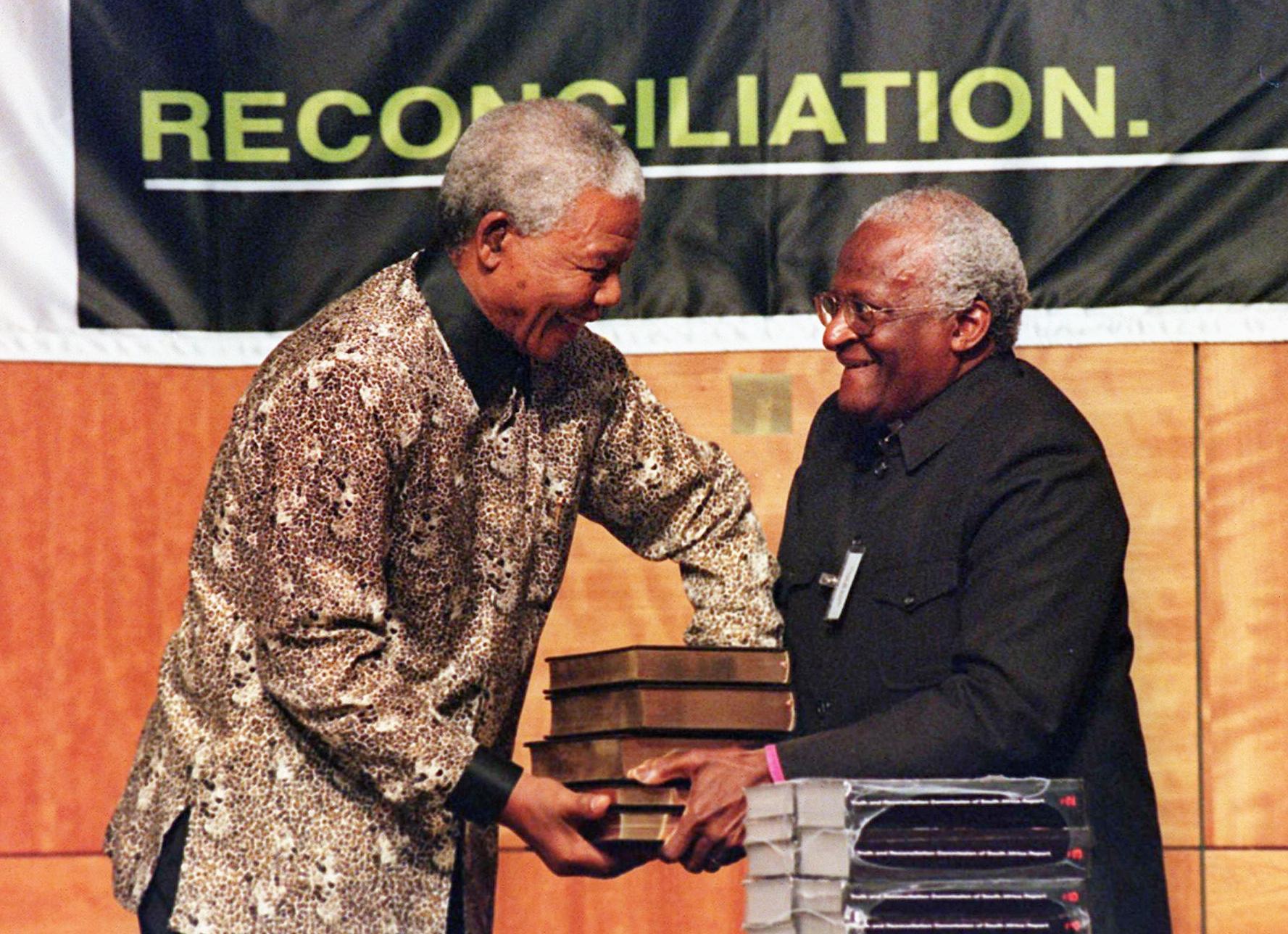Greta is right – Cop27 lacks moral leadership. Like apartheid, the climate crisis cannot be tackled without it
Cop27: My grandfather knew that the struggle for South Africa could not succeed without religious values bridging communities, writes Ndileka Mandela


Your support helps us to tell the story
From reproductive rights to climate change to Big Tech, The Independent is on the ground when the story is developing. Whether it's investigating the financials of Elon Musk's pro-Trump PAC or producing our latest documentary, 'The A Word', which shines a light on the American women fighting for reproductive rights, we know how important it is to parse out the facts from the messaging.
At such a critical moment in US history, we need reporters on the ground. Your donation allows us to keep sending journalists to speak to both sides of the story.
The Independent is trusted by Americans across the entire political spectrum. And unlike many other quality news outlets, we choose not to lock Americans out of our reporting and analysis with paywalls. We believe quality journalism should be available to everyone, paid for by those who can afford it.
Your support makes all the difference.To see women, especially young women, at the forefront of climate activism is inspiring. Especially because the cause can otherwise feel overwhelming. Recently, Greta Thunberg held us all to account. There is, she insisted, insufficient “moral and political leadership on the climate crisis”. Could anyone argue she’s wrong?
At Cop27, there’s a lot of talk about climate finance. That’s well and good, but the real reason we aren’t making progress, the real reason we’re on the verge of catastrophe, is because we aren’t speaking to people in languages that resonate. Language that inspires us to make hard choices. Everything else is just information.
We don’t lack for science, after all. We certainly have the wealth – at least collectively. But how do you go from there to convincing people they need to sacrifice, that they’re connected to people they’ve never met and yet on whose willingness to join the struggle their own future depends? We can look to my grandfather’s example for more.
When Nelson Mandela led our country in the struggle against apartheid, he wasn’t just guided by his own moral and ethical vision. That vision enabled him to build partnerships with like-minded leaders who helped bring everyday South Africans along. Case in point: my grandfather was a man of faith. More intensely in private, but genuinely all the same.
He knew that the struggle for South Africa could not succeed without religious values bridging communities – another reason the late Desmond Tutu’s presence was so critical to ending apartheid. The movement led by the African National Congress and its allies eventually transformed how tens of millions saw themselves.
Political change required moral courage. Apartheid happened in South Africa, of course, but in other countries, too. The fight was uneven and stretched out over decades and even centuries, but we have made immense progress. Stopping climate change requires political change too, and that political change requires moral courage.
But this time, the fight is happening everywhere and all at once.
Without changing hearts and minds individually, without providing them with a compelling and meaningful moral framework that can help move the needle and drive mass action, we have zero chance of anything but climate apocalypse. If I’m using a word with religious resonances, that’s on purpose.
I think Greta Thunberg’s work is important. I hope she continues her brave and necessary activism. She is a hero to many and rightly so. But here’s the thing: does her message translate in other countries and in other cultures? To move people, we have to start with where they are, not where we think they are. I come from and connect to the global south.
In the global south – but not only the global south – religion is kind of a big deal. More than eight out of 10 people worldwide identify with a faith tradition. But how often do politicians work with religious leaders to address shared human challenges?
The G20’s annual gathering in Bali opened this month with the Religion Forum (R20), promoted by Indonesia’s biggest Muslim group, Nahdlatul Ulama (NU), alongside the Muslim World League – the world’s largest Islamic non-governmental organisation. Through their moral and religious capital, they have drawn over three hundred faith leaders to the R20.
These faith leaders represent all the great faiths of the world, convened to address challenges that bind all human communities. The secretary-general of the Muslim World League, Dr Mohammed bin Abdul Karim Al-Issa, and the NU’s general chairman, Yahya Cholil Staquf, jointly called on political leaders to engage with faith leaders on shared challenges.
With so many leaders from Christian, Muslim, Hindu, Buddhist and Jewish denominations, it’s not hard to imagine the potential. But will the world leaders attending the G20 seize the opportunity to engage these faith leaders to literally help save the planet?
To keep up to speed with all the latest opinions and comment, sign up to our free weekly Voices Dispatches newsletter by clicking here
Tragically, divisions across the world, between regions, religions and geopolitical blocs have hindered climate action. For people in the global south, the failure of the world’s richest nations – largely the source of historic and present emissions – to have made good on their promise of $100bn (£87bn) in climate finance is galling.
The echoes of colonialism – what is not unfairly sometimes called climate colonialism – are hard to miss. Yet we cannot allow ourselves to descend to anger, even if anger is warranted. Too much is at stake. Ending apartheid required compassion, truth and reconciliation. Climate change will require the same. And faith leaders will be necessary to help us get there.
In many places in the global south, there are few leaders except religious leaders. Their networks, credibility and connections to bigger institutions and larger frameworks will be vital. That is something people in the West must understand if they want to reverse climate change. The R20 and the G20 make vital space for those exchanges to happen.
Without their motivation, it is nearly impossible to imagine anything else that can convince enough people the world over to do what needs to be done. Let’s get the work started – while we still can.
Ndileka Mandela is a writer, social activist and head of the Thembekile Mandela Foundation. She is the eldest grandchild of Nelson Mandela
Join our commenting forum
Join thought-provoking conversations, follow other Independent readers and see their replies
Comments